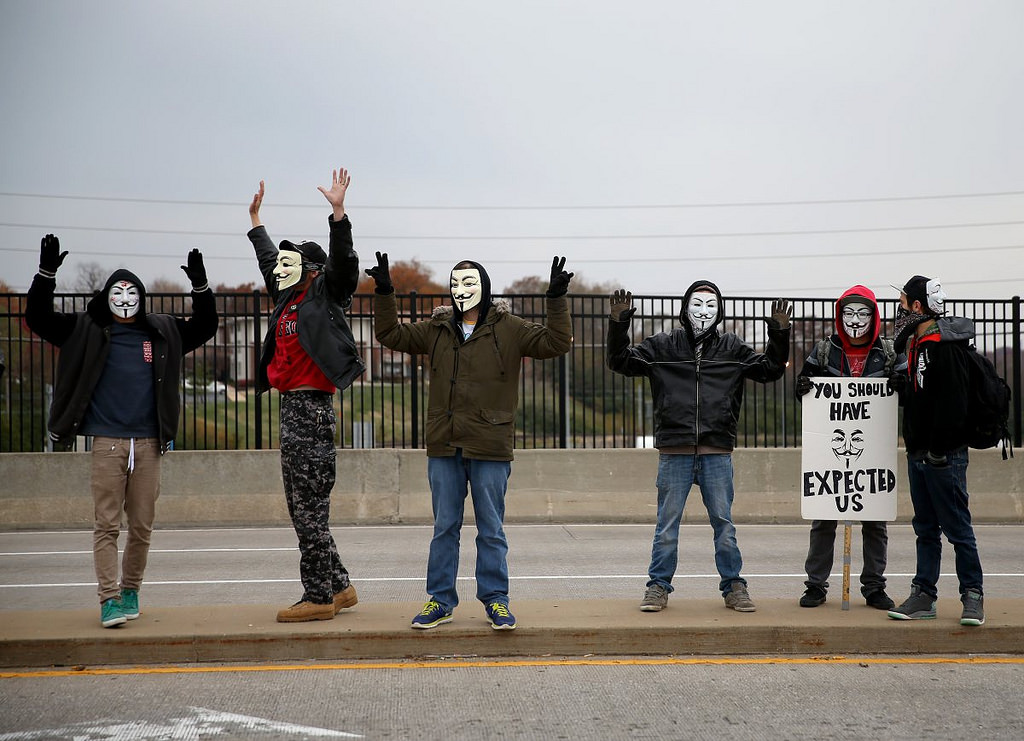 NEWS
NEWS
 NEWS
NEWS
 NEWS
NEWS
Social media analytics platform Geofeedia had been feeding information from Facebook, Instagram and Twitter to law enforcement, according to a report just released by the American Civil Liberties Union.
Once the ACLU announced its findings, the social media giants were reported to have severed ties with Geofeedia, although in another report ACLU states that police are using a “number” of surveillance tools to target mainly “unions and activist groups” and also “activists of color.”
“The ACLU of California has received thousands of pages of public records revealing that law enforcement agencies across the state are secretly acquiring social media spying software that can sweep activists into a web of digital surveillance,” the report said.
One example of how police attempted to use such technology was a during violent protests in Baltimore following the killing of Freddie Gray, when police monitored social media to anticipate protest locations. A group of high-school students was arrested after agreeing to meet via social media. It was also reported that police were using facial recognition software.
Although the social media giants in this case terminated their contract with Geofeedia, the ACLU found information suggesting that Geofeedia, the police and the social media platforms were all working together. The report says that in one email, a Geofeedia representative “tells police that the company has arrangements with Twitter and Instagram for user data.”
ACLU has asked Twitter and Facebook to better police their own privacy agreements with the public, stating that no data access should be given to developers of surveillance tools and agreements between social media and developers of such tools should be made available to the public.
In a letter to Facebook, the ACLU wrote, “In the digital age, social media has become a powerful platform to expose human rights abuses and connect across issue and geography. However, these data deals enable dangerous police surveillance that weakens this platform’s power, chills free speech, and threatens democratic rights.”
Facebook defended itself by saying that it didn’t allow Geofeedia access to anything that users had not made public, and that if it found out developers had breached contractual stipulations it would “take swift action to stop them and we will end our relationship altogether if necessary.”
In a statement Geofeedia said:
Geofeedia has in place clear policies and guidelines to prevent the inappropriate use of our software; these include protections related to free speech and ensuring that end-users do not seek to inappropriately identify individuals based on race, ethnicity, religious, sexual orientation or political beliefs, among other factors. That said, we understand, given the ever-changing nature of digital technology, that we must continue to work to build on these critical protections of civil rights. Geofeedia will continue to engage with key civil liberty stakeholders, including the ACLU, and the law enforcement community to make sure that we do everything in our power to support the security of the American people and the protection of personal freedoms.
With tech companies cracking down on content that they feel might incite violence – and even developing algorithms to censor the internet – questions surely will arise about the alliances of such tech giants and the ethics established by groups with similar interests.
Support our mission to keep content open and free by engaging with theCUBE community. Join theCUBE’s Alumni Trust Network, where technology leaders connect, share intelligence and create opportunities.
Founded by tech visionaries John Furrier and Dave Vellante, SiliconANGLE Media has built a dynamic ecosystem of industry-leading digital media brands that reach 15+ million elite tech professionals. Our new proprietary theCUBE AI Video Cloud is breaking ground in audience interaction, leveraging theCUBEai.com neural network to help technology companies make data-driven decisions and stay at the forefront of industry conversations.